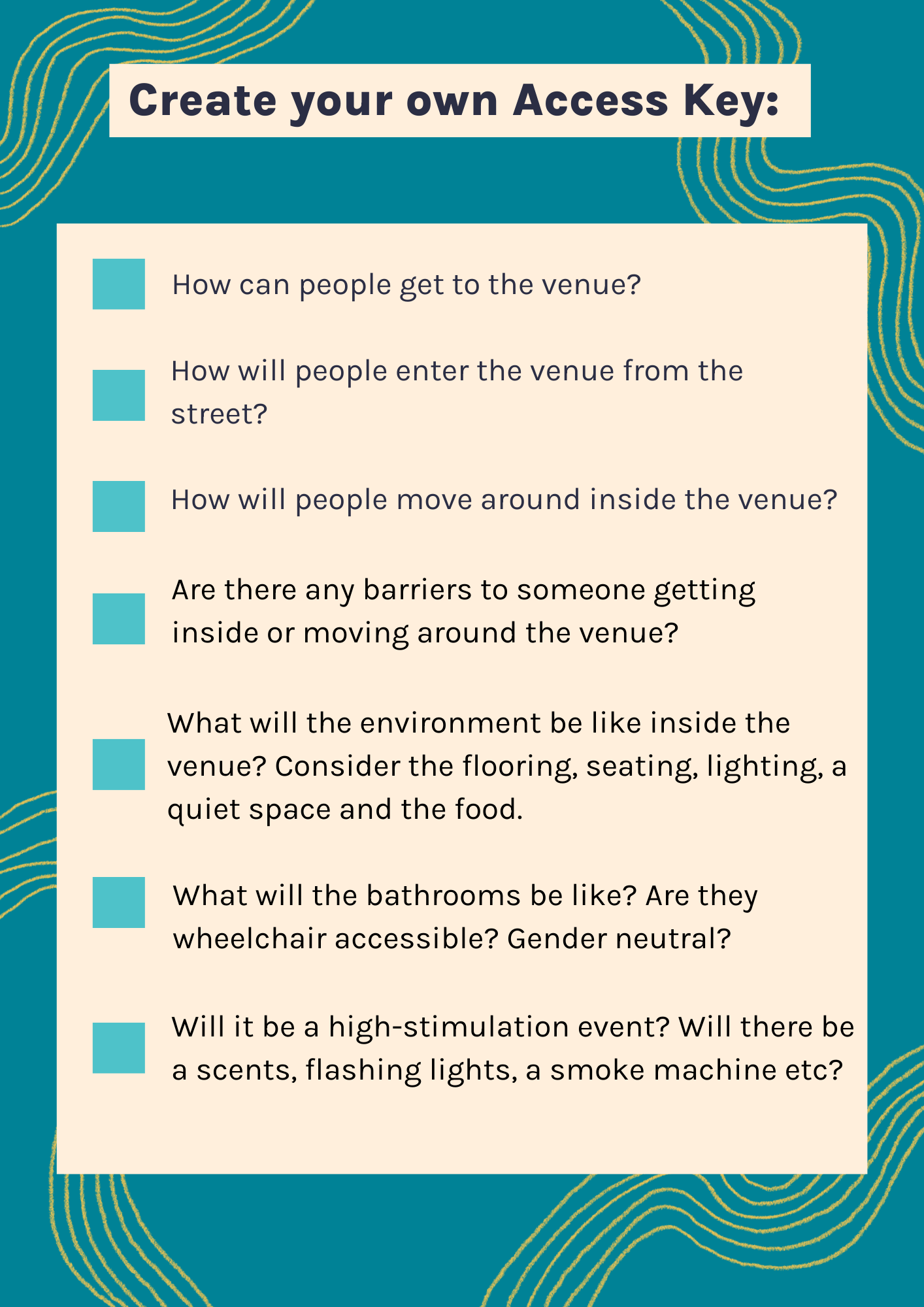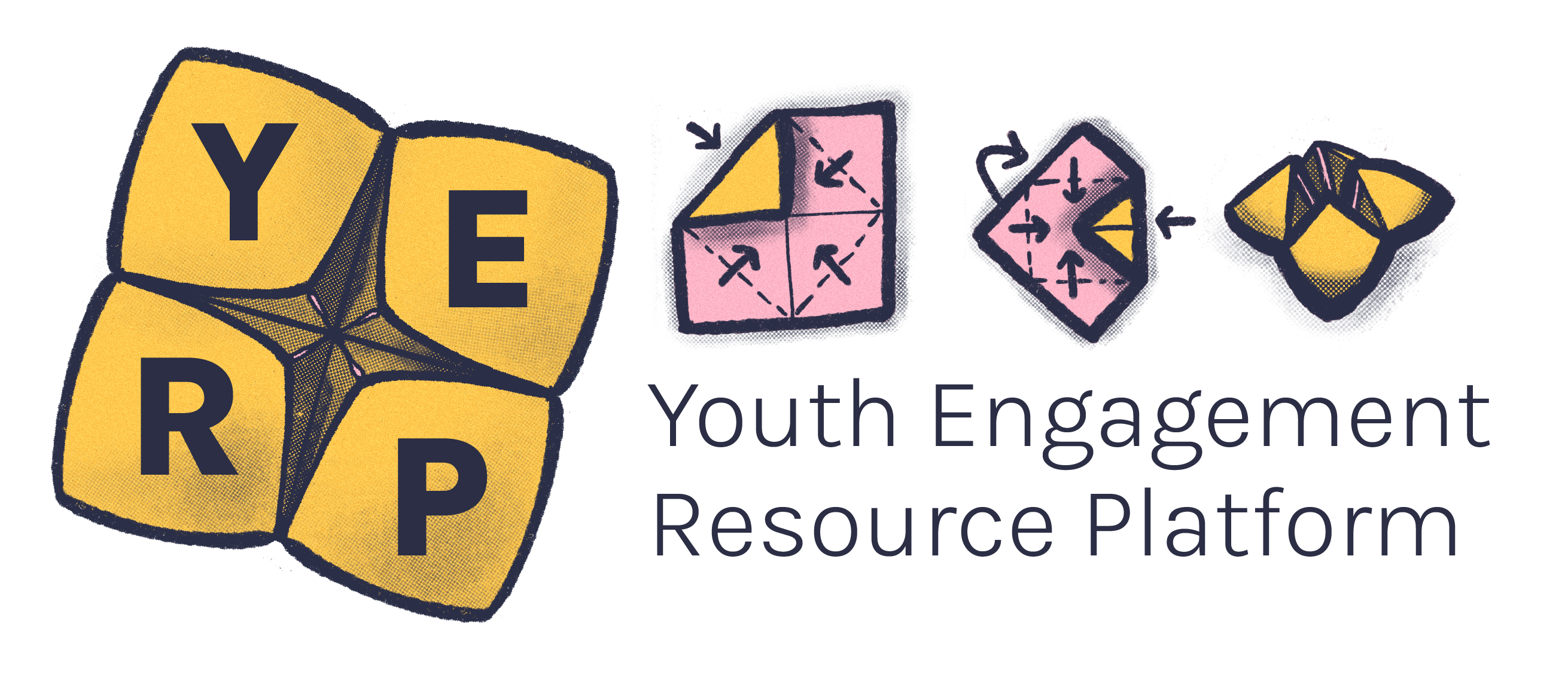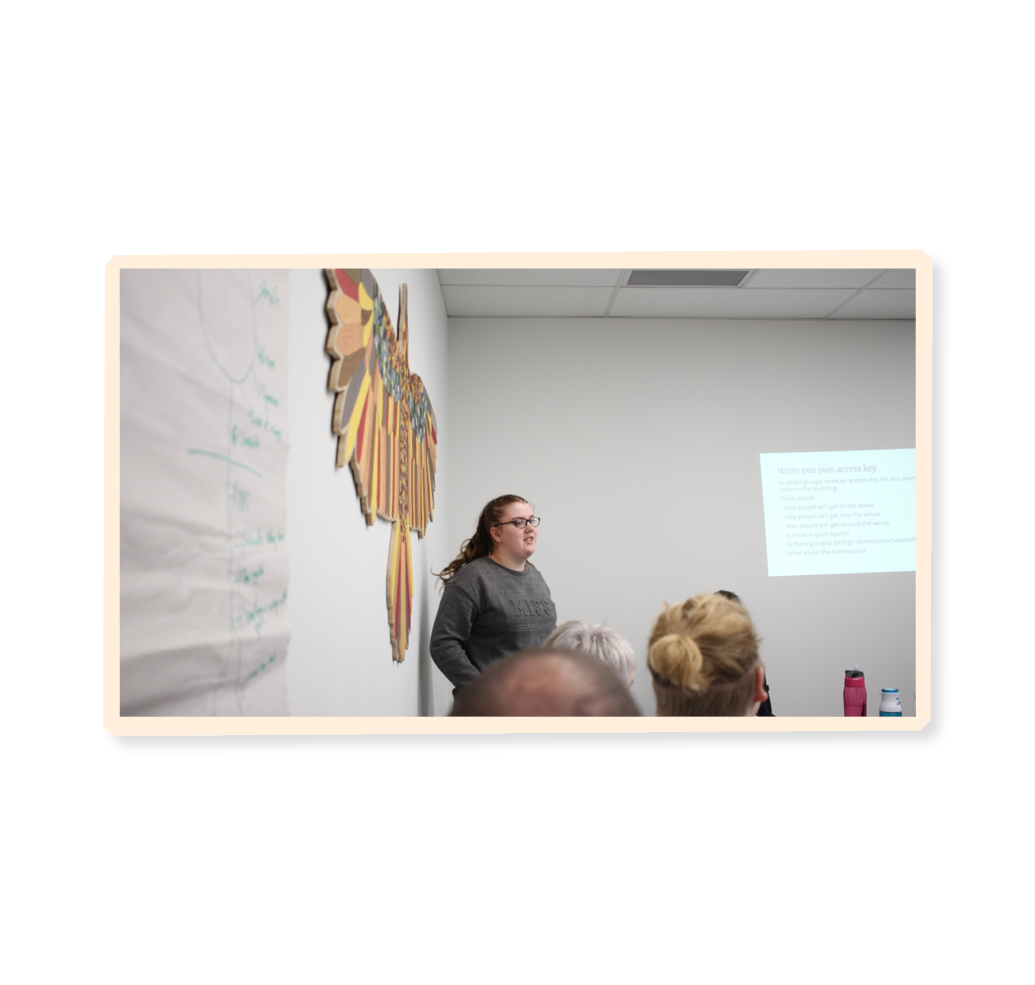The Youth Disability Advocacy Service (YDAS) is the leading voice for disabled young people’s inclusion and are experts in championing and creating access keys. This resource uses information created and developed by the team at YDAS.
An access key is a document that outlines what will happen at an event and lets people know about access inside the venue, outside the venue and how to get there. It also shows the people in your organisation and other participants that you’re dedicated to including everyone at events and in your services.1
Venues should be accessible for everyone. If this is not a possibility, an online/hybrid event could be the next best option. There is a vast range of access needs people might have, and sometimes it’s not possible to meet all of these needs for various reasons such as time constraints, budget or venue (for example, you might be hosting your event in a heritage listed site that you can’t make changes to).1
Writing an access key is about giving people the best information about your event so they have agency and confidence to attend.
To give you an idea of what an access key can look like, check out YACVic’s access key.
Access Keys:
- Prepare people about how to get to a venue and how to navigate it.
- Contain helpful information that people should know about certain spaces, such as where toilets are, emergency exits, if there are quiet spaces etc.
- Acknowledge when a space might not be completely accessible so that young people, particularly disabled young people, have more agency and control over if and how they attend and participate. For example, for people who use wheelchairs, or for those with other forms of mobility or sensory impairments, it can outline the best ways to get to the venue and move around them.
- Are particularly helpful for some Autistic people or people with certain types of mental illness, as it helps alleviate stress around going somewhere new.
- Supports multicultural young people to understand Australian conventions.
- Lets LGBTIQA+ young people know about gender neutral bathrooms.
- Supports people with prams or people with temporary injuries to know where ramps and elevators might be.1
A photo of some TAFE buildings.
An access key is usually created as a word document, that includes a contents page at the beginning. Every access key you read or create will be slightly different, as they need to be tailored to the specific venue.
When creating an access key for the first time, please read and use Undercurrent Victoria’s framework, which breaks down 'getting to the event', 'entering the venue', 'inside the venue', 'bathrooms' and 'breakout areas' into detailed checklists to include in your access key.
Check out the reflection questions from YDAS that you should consider when creating your own access key. These can act as a checklist of what to include, noting that this list is not exhaustive.1
Heading reads: Create your own access key.
Each point has a check box. Points read:
- How can people get to the venue?
- How will people enter from the street?
- Are there any barriers to someone getting inside or moving around the venue?
- What will the environment be like inside the venue? Consider the flooring, seating, lighting, a quiet space and the food.
- What will the bathrooms be like? Are they wheelchair accessible? Gender neutral?
- Will it be a high-stimulation event? Will there be scents, flashing lights, a smoke machine, etc?

Once your access key is complete, there are a few ways you can distribute it:
- If your access key is for an event, you can upload it to the event webpage or ticket purchase website.
- You can also include it in an email to your event attendees prior to the event.
- If your access key is for your organisation or youth space, we recommend it goes in a public place, where people can easily access it if they’re thinking about attending your venue. This can be somewhere such as your organisation’s website or the website for your youth services/programs.
- We also suggest that new staff are emailed or sent your organisation’s access key prior to their first day at work.
Download this access key template to get you started!
- Youth Disability Advocacy Service. (n.d). Access Keys. https://www.yacvic.org.au/ydas/resources-and-training/together-2/practical-ideas/access-keys/





